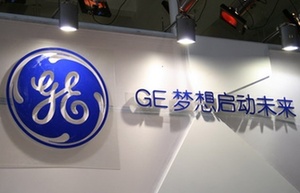Last year, China's biopharmaceutical manufacturing industry was worth 2.1 billion yuan ($337 million), according to Zhang. This marked growth of 18 percent over a year earlier.
Like China, South Korea is also looking to biotechnology and the development of biologic drugs, to help shore up both healthcare and economic growth.
"The healthcare industry is a key driver of growth," said Park Ha Jung, deputy minister for planning and coordination at the Ministry of Health and Welfare, during last month's Bio Korea 2014 Convention. "Korea has successfully developed stem cell treatments and has established itself as a leader in biosimilars."
South Korea plans to position itself as the seventh-largest market in the world for the bio industry by 2020.
Other parts of Asia are lagging behind, although Indonesia has made some moves along with Singapore, Malaysia and Taiwan. But these places are typically home to smaller companies.
It is precisely these smaller companies that the global giants look to for expansion, however, as the smaller firms can develop personalized products at the heart of the promising future for biologic drugs.
This is one key aspect of biologic drugs. They are more targeted and personalized. They typically focus on much more specific diseases than the broad-spectrum chemical drugs. A chemical-based aspirin, for example, can be consumed to deal with a number of symptoms, yet no such biologic drug exists. Aspirin works by blocking pain receptors. It deals with the symptoms of an illness but not the actual problem.
Biologic drugs, however, aim to tackle the problem by reaching into the very cells of the body and fixing them, rather than simply eliminating defective cells.
One factor that could help companies in Asia step onto the world stage is the global intellectual property infrastructure.
Patents protect drugs from being copied by competitors, but the patents currently used for some best-selling biologics will expire this decade. The door will then open for companies to develop and market copies of these drugs, known as biosimilars.
The expiration of patents also means that pharmaceutical companies will need to find replacement blockbusters or new ways to shore up their bottom lines. Some are moving toward personalized medicine, which translates into fewer but much more valuable sales, as those who buy these drugs will be charged higher prices.
 |
 |
| Sky's the limit in healthcare, GE chief says |
